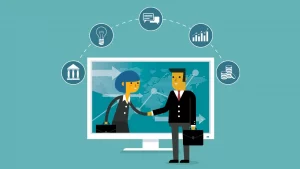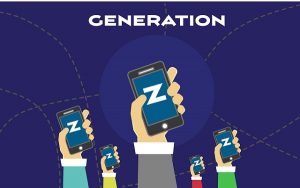Come for the Job, Stay for the Challenge: Career Fairs in 2022
Samantha Badr
What a time to be alive, HR professionals. Let’s add recruitment to the list of functions that has completely shifted in the last few years. Forget everything you thought you knew – because I guarantee it has changed. This past week I attended a career fair, except I was looking for applicants and not looking for a job (weird, right?). I also had the luxury of attending from my “home office”. Yup, even career fairs have now become virtual, folks. If I had to guess, I would assume at least 80% of the students attending this career fair were not wearing shoes. Nevertheless, it was an experience – and as always, I will share my thoughts.
Every aspect of HR has been altered, so it’s no surprise that recruiting has changed too. Believe it or not, organizations are having a hard time recruiting talent, even with internet job portals at their disposal. Recruiters have tried to look internally to fill vacant job roles, but it’s simply not enough. With the virtual space at our fingertips, it would be a waste to not participate in any virtual career fairs this year. Virtual hiring event platforms are using chat technology and teleconferencing to replicate the interactions job seekers and recruiters once shared. Job applicants can meet with companies individually in a specified time frame, use chat functions to ask questions, and have “face-to-face” meetings with recruiters.
Virtual career fairs are easier to promote and manage. They can effectively capture attendee data and offer some sort of a personalized experience, but with a lot less overhead. The cool thing about this career fair was that organizations were provided a master list of all attendees, their anticipated graduation date, their majors, and their resumes. Job seekers waited in a virtual lobby before being admitted by recruiters into their own personal meeting room. It was almost like speed dating – five minutes to ask questions and have some light banter before going onto the next meeting.
According to a survey conducted by a recruitment marketing agency, Recruitics, 46% of employers are not using virtual hiring events. But why is that? In a few short hours, I was able to meet with 15 future job applicants. That’s 15 more people than I knew yesterday. That’s 15 more job applications. Why are organizations not utilizing these resources? I know recruiters thrive with on-the-ground efforts and conversing with candidates face-to-face, but that’s becoming more obsolete. The new candidate pool is tech-savvy, and it’s time recruiters match their energy
The most common question I received was “do you have any internship programs”? I was shocked at how many students preferred that over the part-time jobs we had open. It got me thinking though, and maybe it makes sense. College students are more likely to join your organization on an internship basis. Almost like a “free trial” – they get to experience company culture for half a semester without fully committing to the job. Additionally, most internships qualify for college credit and university stipends.
Maybe we’re approaching recruiting all wrong. Maybe organizations should start focusing on providing competitive internship opportunities, instead. These students want to be coached, and they want to get their feet wet without fully drowning in a job and schoolwork. The goal is to get more people in the door, right? I guess it’s back to the drawing board..



